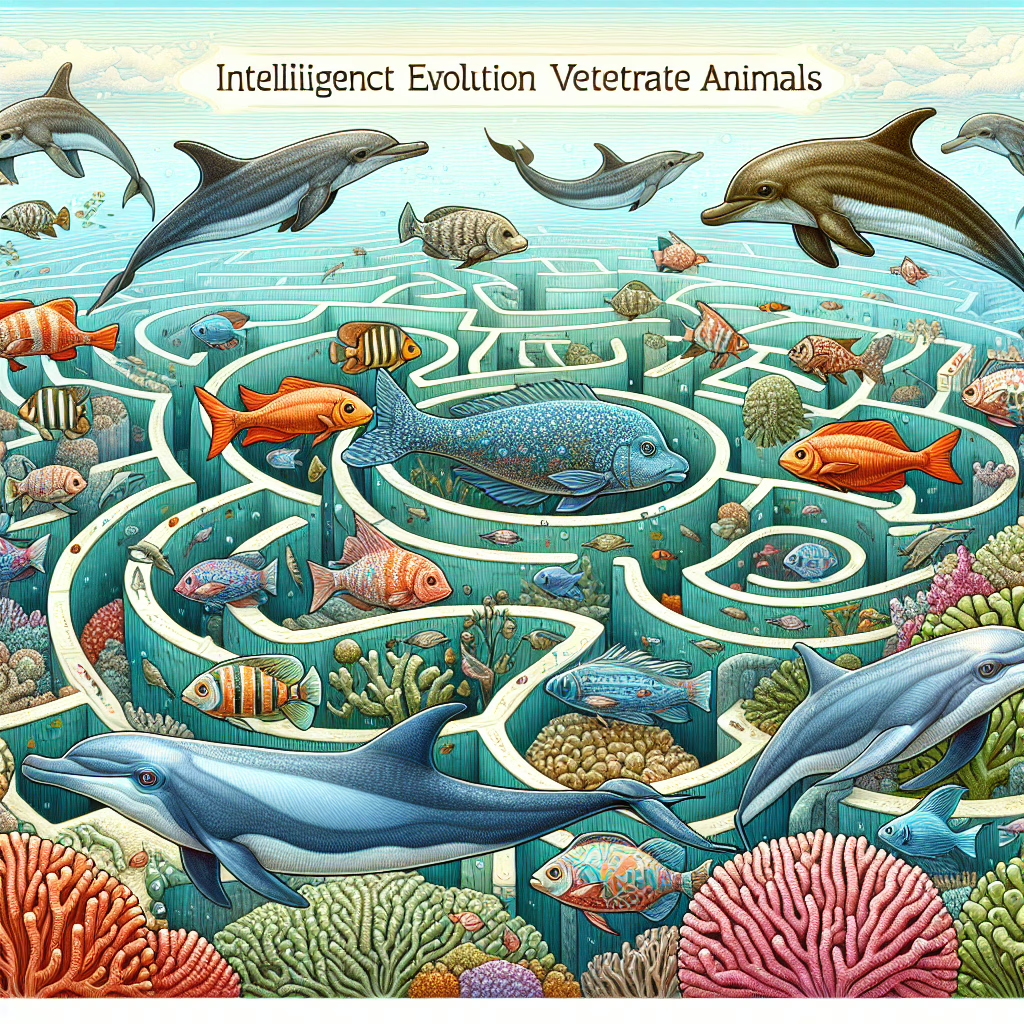In a world where we often think of intelligence as the crown jewel of human evolution, it’s time to take a step back and appreciate that our brainy abilities might not be as unique as we once thought. Recent studies have unearthed some fascinating evidence suggesting that intelligence evolution has occurred not once, but at least twice in vertebrate animals. Yes, you heard that right! Our fishy friends and other distant relatives might just be smarter than we give them credit for.
What Does It Mean to Be Smart?
When we talk about intelligence evolution, it raises the question: what exactly does it mean to be smart? Traditionally, we’ve associated intelligence with problem-solving abilities, social skills, and even the capacity to form complex relationships. But who knew that fish could also participate in this intellectual race?
Researchers recently conducted a delightful investigation that revealed some surprising truths about the cognitive capabilities of various vertebrate animals. For instance, while we humans love our crossword puzzles and Sudoku challenges, it turns out that certain species of fish can navigate mazes just as well—perhaps while listening to their favorite underwater tunes!
The Brainy Fish: An Unexpected Surprise
You might be wondering how fish fit into this narrative of intelligence evolution. Well, brace yourselves! The study indicates that teleosts—yes, those bony fish swimming in your local aquarium—have developed sophisticated brains that rival those of terrestrial vertebrate animals in some aspects.
Research shows that these fish can learn from experience and adapt their behavior accordingly. If they were to attend a school for fish, they might just ace their exams on problem-solving strategies! So next time you see a goldfish swimming in circles, remember: it might be plotting its escape route!
The Mammalian Mind: A Different Path
While our slippery friends are busy mastering mazes, mammals have taken a different evolutionary route toward intelligence evolution. It seems that both groups have independently developed complex cognitive abilities. This divergence is like watching two chefs create different dishes from the same ingredients—both delicious but distinctively unique!
Mammals like dolphins and elephants exhibit remarkable social intelligence. Their ability to communicate and form strong social bonds showcases another layer of smarts beyond mere problem-solving. Imagine an elephant organizing its own book club—now that’s a gathering we’d all want to attend!
A Closer Look at the Evidence
The evidence supporting this dual path of intelligence evolution comes from comparative analyses of brain structures across various vertebrate animals. Researchers focused on areas related to cognitive processing and memory retention. They found striking similarities between the brain structures of teleosts and those of mammals.
This leads us to ponder: if both fish and mammals can develop intelligence independently, what does that say about the environment’s role in shaping cognitive abilities? Perhaps it’s less about the species and more about the challenges they face within their habitats!
The Role of Environment in Shaping Intelligence
Speaking of environments, let’s take a moment to appreciate how different habitats can influence intelligence evolution. Marine environments present unique challenges—from navigating murky waters to finding food amidst coral reefs—that may have driven fish to enhance their cognitive skills over generations.
On land, mammals face their own set of challenges. The need for social cooperation in hunting or gathering resources likely pushed mammalian brains toward greater complexity. By understanding these factors, we see that teamwork can lead to smarter species! Perhaps it’s time for us humans to take some notes!
A Lesson for Us All
This fascinating research underscores an important lesson: intelligence isn’t just a one-size-fits-all trait exclusive to humans. Instead, it evolves through various pathways in response to environmental pressures. So the next time you find yourself feeling superior about your brainpower, just remember your clever aquatic counterparts.
As we continue exploring intelligence evolution, let’s celebrate the diversity of thought processes across species. Whether you’re a dolphin who can recognize yourself in a mirror or a crow who crafts tools out of twigs, each creature has its own story to tell!
So what do you think? Are there lessons we can learn from our vertebrate friends? Join the conversation below and share your thoughts on this intriguing journey through the realms of animal intelligence.
Thank you to Wired for their insightful article that inspired this exploration into the world of intelligence evolution. We appreciate your contributions to understanding our brainy world!

